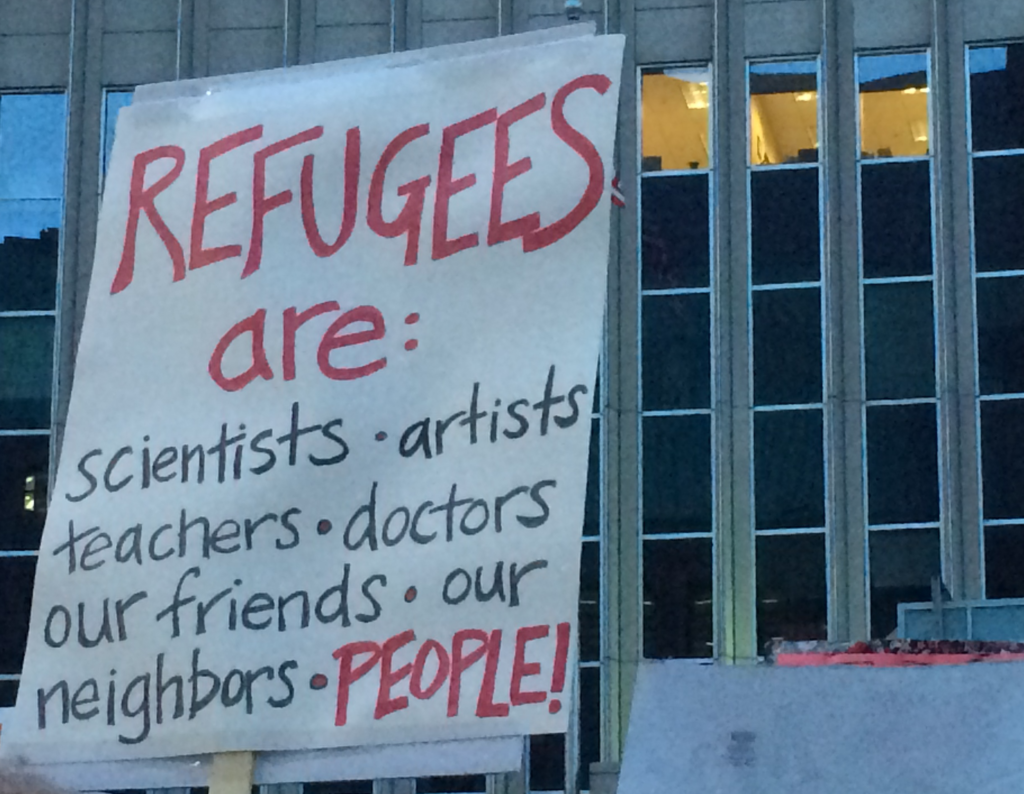News > Press Releases
Refugee contributions enrich Minnesota
Posted on Mar 01 2018
March 1, 2018—Pakou Hang founded the Hmong American Farmers Association, building economic strength through cooperation. Solomon Paul directs Austin’s Welcome Center, offering assistance to immigrants, employers, and to the wider Austin community. Kevin and Kunrath Lam own and operate Cheng Heng restaurant in St. Paul, and support charitable organizations in Minnesota and in their native Cambodia. Refugees from around the world, now settled across Minnesota, enrich both our state’s culture and its economy.
“Every refugee has a story to tell, and every refugee has a contribution to make to Minnesota,” said John Keller, executive director of the Immigrant Law Center of Minnesota. “They help build Minnesota’s economy, they are crucial colleagues and board members at ILCM and many of our partner organizations, but their personal and cultural contributions are even greater.”
Economic contributions of refugees to Minnesota can be difficult to measure. The Office of the Legislative Auditor for Minnesota has concluded that data on costs and benefits of refugees in Minnesota are not adequate to assess the economic impact of refugee resettlement. In part, that is because of “the limited extent to which refugee-specific data on costs or revenues are collected in public agencies,” and in part because it is “difficult to fully identify which Minnesota residents are currently—or once were—refugees.”
Arguments about refugee resettlement continue across the state and country. The key difference between the argument that refugees generate a net economic benefit and the argument that refugee resettlement costs too much is in the time frame.
After the first few years of resettlement, refugees work, start businesses, and contribute greatly to the economy. “The net fiscal impact of refugees was positive over the 10-year period, at $63 billion,” according to a 2017 report by the federal Department of Health and Human Services (Because the conclusions of the report were not what it wanted, the Trump administration blocked its release.)
When refugees arrive after spending years or decades waiting in camps, they do need assistance. That assistance typically does not last long. Refugees quickly repay the loans for their airfare to come here, and then proceed to rebuild their lives and contribute to the country, both economically and through their courage, patriotism, and civic participation.
While no one has a specific break-out of economic data for Minnesota refugees, a recent report from the American Immigration Council documents contributions of Minnesota immigrants to the state’s economy and tax base. One example: Minnesota immigrants paid $2.2 billion in federal taxes and $1.1 billion in state and local taxes.
“If anyone doubts the contributions of refugees to the state, I hope they will take time to meet refugees and listen to their stories,” said Keller. “Their stories may begin in flight from violence, but they end in determination and courage and building new lives as Americans. Their contributions make us stronger as a state and as a nation.”
Refugees stories can be found in many places, including:
- Solomon Paul Welcomes Immigrants to Austin
- Eh Mwee: Building Bridges in Five Languages
- Ojoye Akane: Connecting Families, Faith, and Homes
- Edwige Mubonzi: Mobile Doctor
- Pakou Hang: Activist organizes Hmong-American farmers “at the nexus of history”





